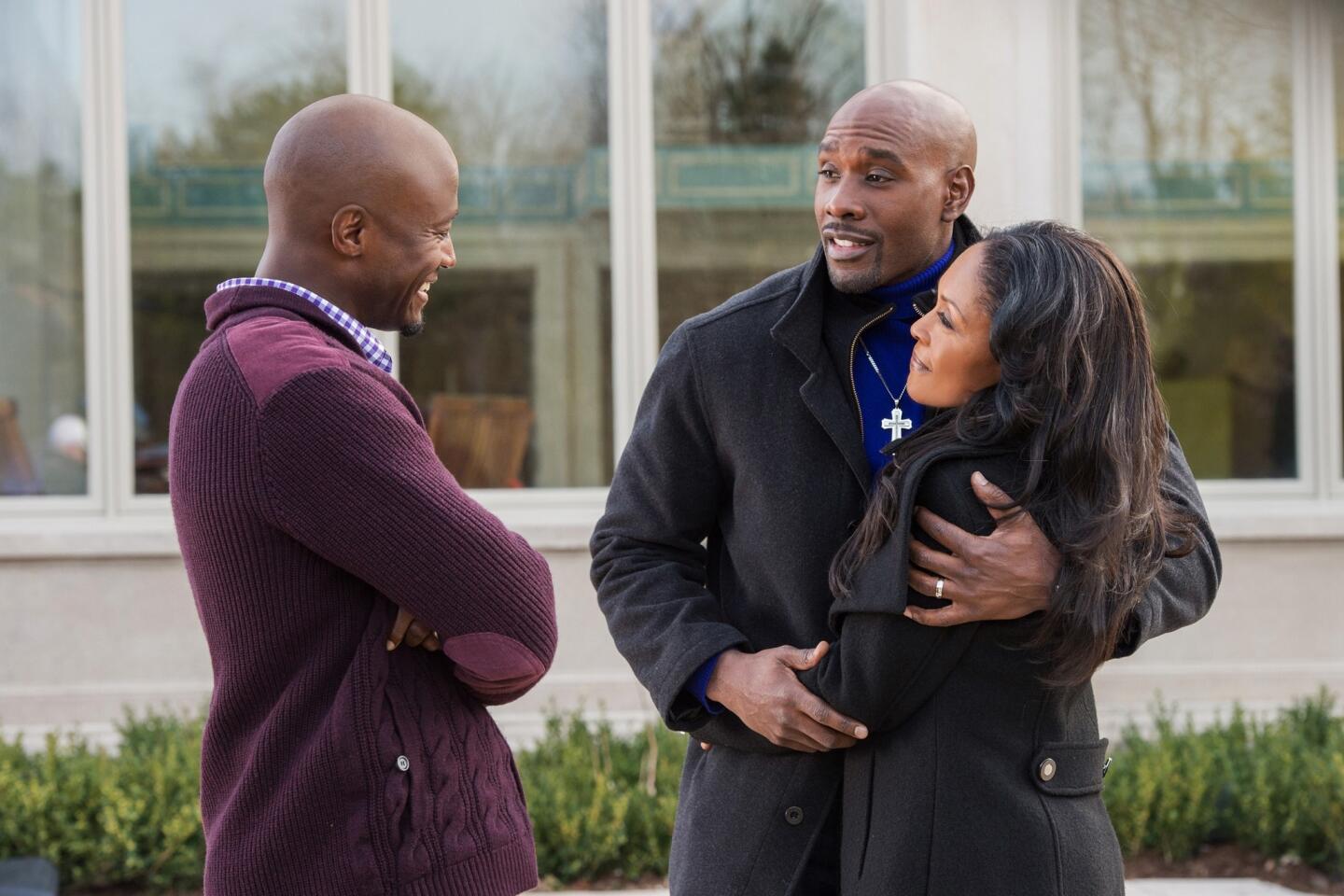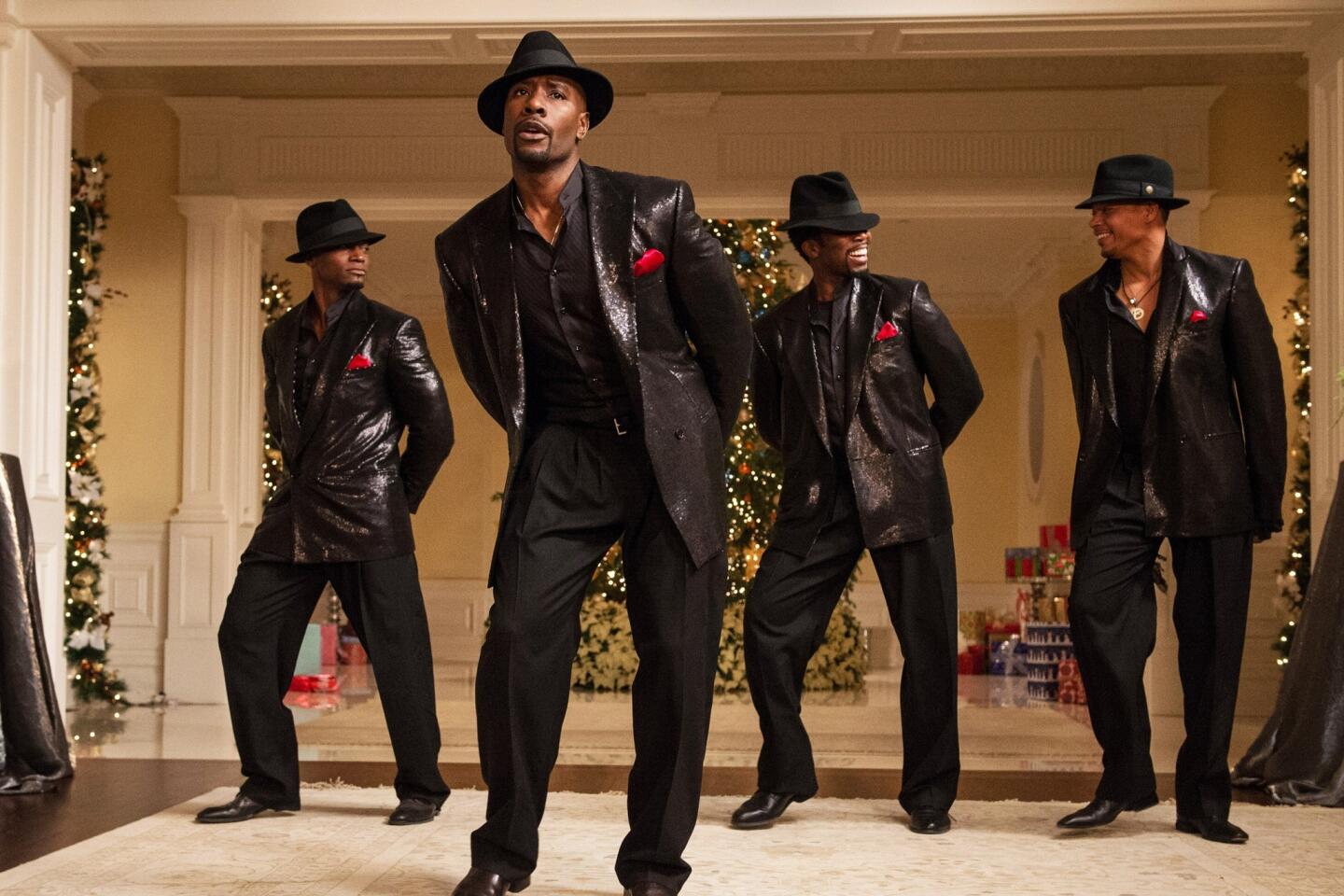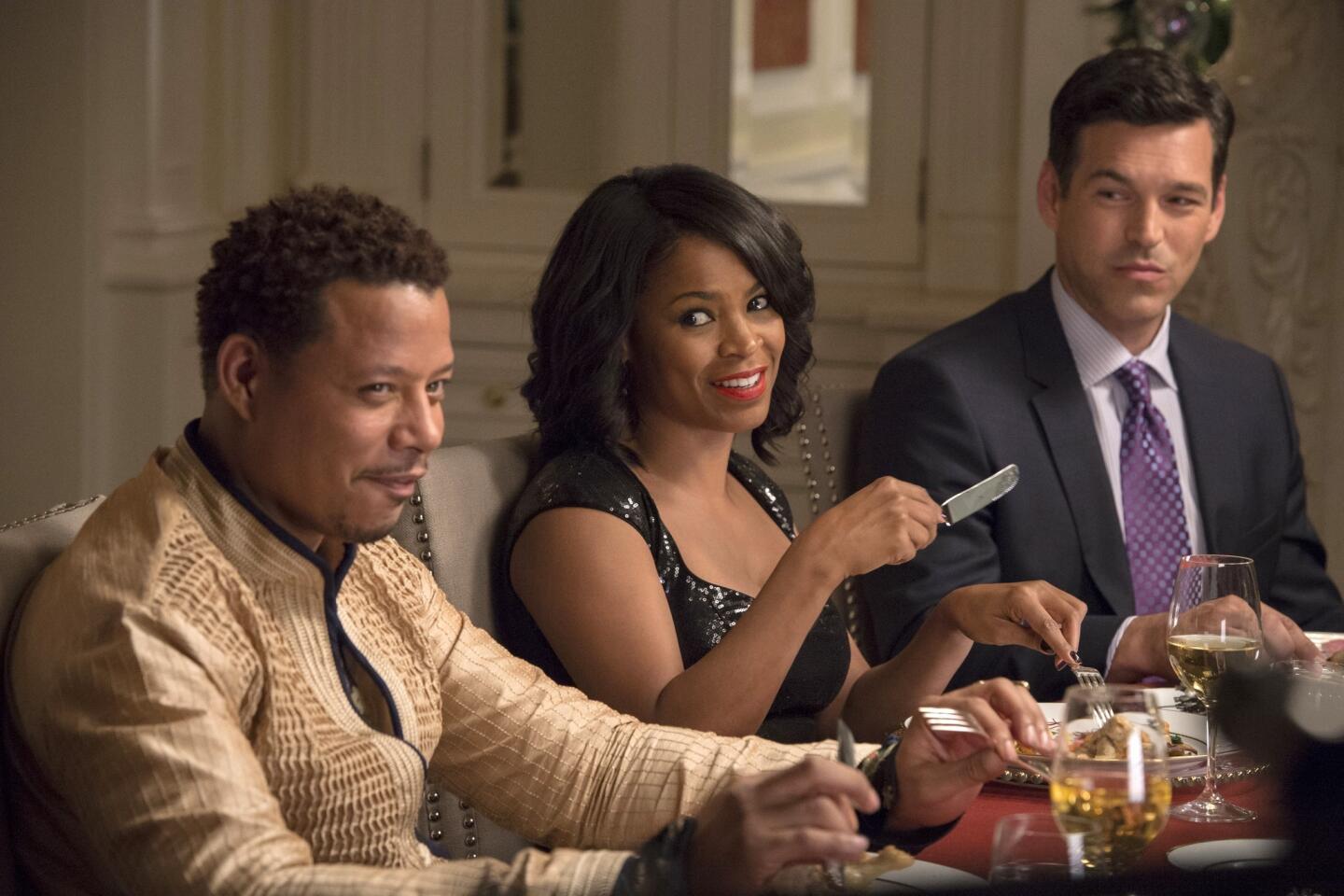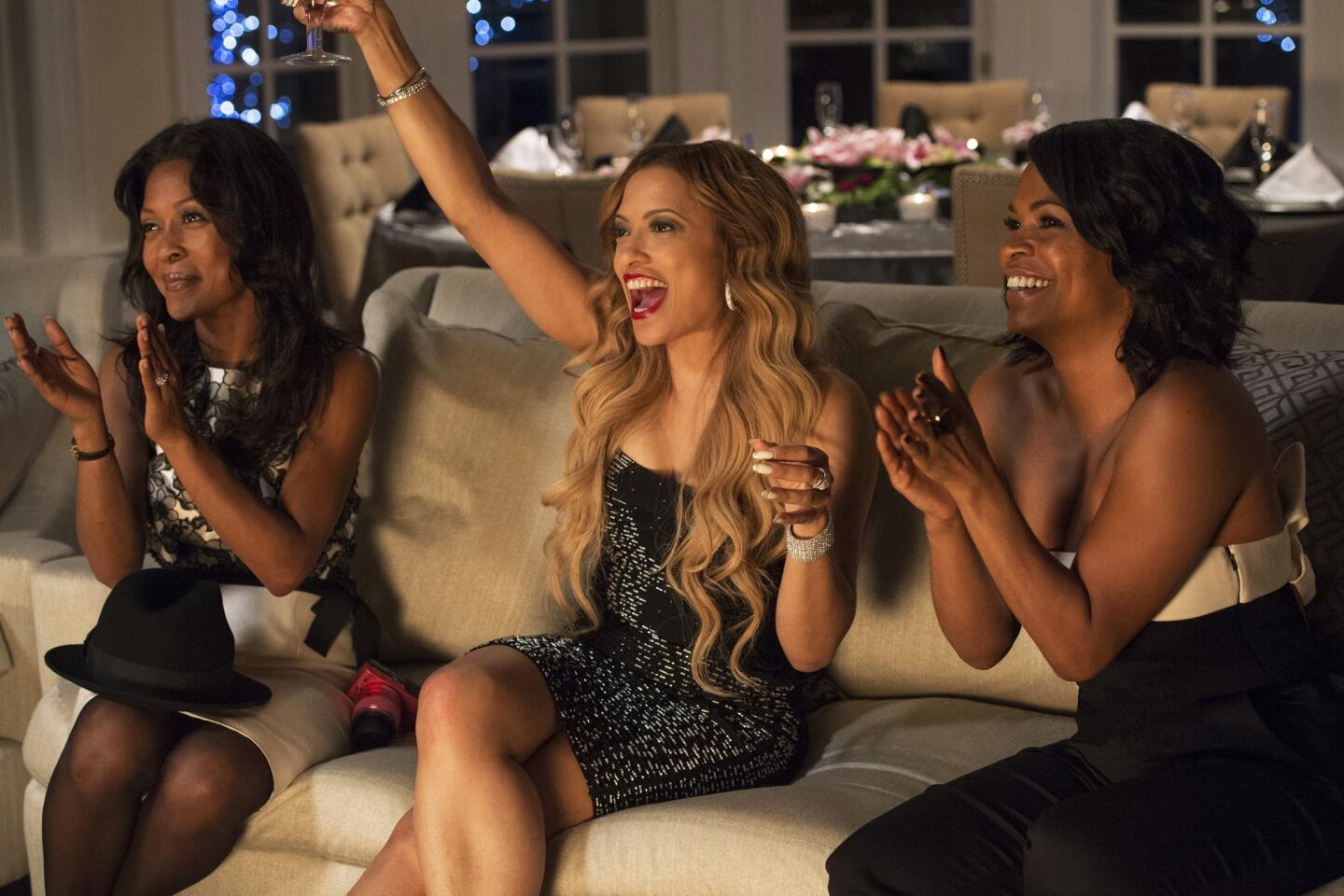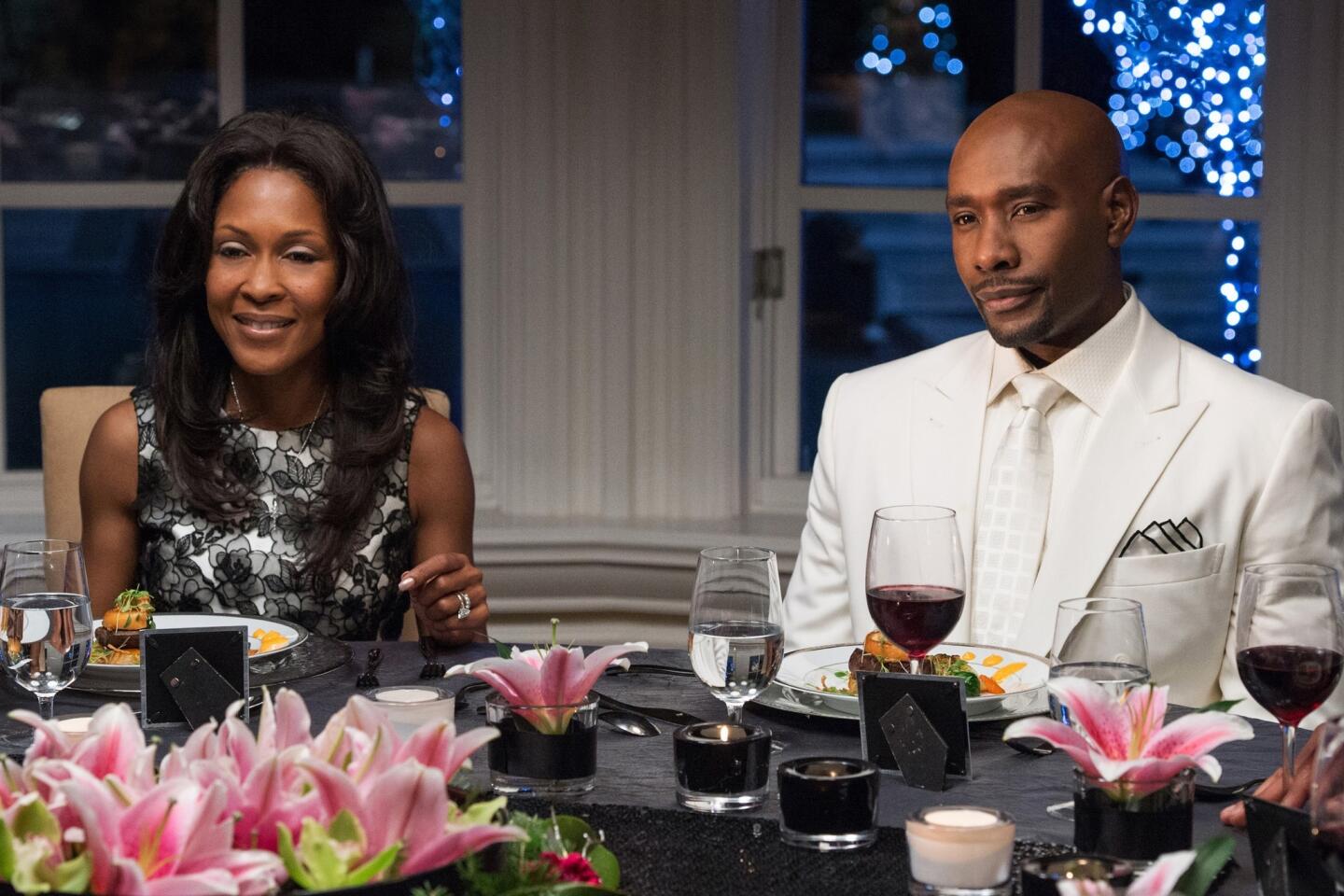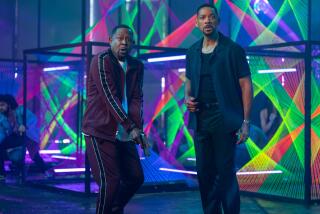Analysis: Why ‘The Best Man Holiday’ beat box-office estimates
- Share via
When Malcolm Lee’s reunion comedy “The Best Man Holiday,” which features a primarily African American cast, grossed an impressive $30.6 million at the box office this weekend, some in Hollywood were quick to say the movie “overperformed” — prompting others, just as quickly, to question that assumption.
“So are we calling ‘The Best Man Holiday’ yet another overperforming black film or are we ready to admit that the model is wrong?” tweeted Franklin Leonard, founder of the Black List of most promising unproduced screenplays and an outspoken voice on race and Hollywood. Defamer’s blunt headline: “Critics need to stop being shocked that black films do well.”
Though some in the ensuing Twitter to-and-fro pointed out that pundits were simply sizing up the movie relative to its tracking — it had been forecast to take in $24 million — those involved with the film offered a persuasive argument.
“I didn’t like the thing people were saying that we were overperforming,” Lee said in an interview Monday. “It’s been demonstrated time and again that African American movies perform. But the reaction is still ‘wow,’ like they’re still surprised.”
PHOTOS: Scenes from ‘The Best Man Holiday’
Lee, Leonard and others believe that many of the assessments are based on unrealistically low expectations. Similar reactions, they say, followed the release of the Steve Harvey adaptation “Think Like a Man” last year, which topped so-called pre-release estimates with a $33-million opening on its way to a $91-million total.
As director Lee Daniels said in an interview this summer before the release of his film “The Butler,” “What does it take for people in Hollywood to realize black audiences will come out to see a movie? Does ‘The Butler’ need to make $100 million?” (It did.)
Still, “Best Man Holiday” has done something that few movies aimed at a black audience have achieved before — and if that’s not shocking, it’s still notable.
Starring well-known but hardly mega-star actors such as Terrence Howard and Taye Diggs and directed by the not-exactly-household name of Lee, the film can’t be categorized as a personality-driven branded powerhouse like a Tyler Perry movie or even, for that matter, “Think Like a Man,” which had the Steve Harvey imprimatur.
PHOTOS: Billion-dollar movie club
“Best Man” also can’t be explained away as seasonally friendly holiday fare; most moviegoers aren’t thinking Christmas movies in mid-November.
It also couldn’t be attributed to that popular culprit for a hit: a young moviegoing audience. Nearly two-thirds of its audience was over the age of 35. Incidentally, the success of “Best Man Holiday” comes on the heels of another reunion movie, “Last Vegas” which is giving the lie to beliefs about a different demographic — namely that older audiences can’t open a movie. Nearly half of “Vegas’” opening weekend was over age 50. And the film keeps chugging along, approaching $50 million in domestic box office.
Nor did the success of “Best Man” seem to be driven by the fact that it’s a sequel — the original movie, “The Best Man,” came out in 1999, a lifetime ago in most moviegoers’ minds.
Instead, it’s a hit film that couldn’t be rationalized or chalked up to outside factors. It was simply an old-fashioned crowd-pleasing movie. (“Best Man Holiday” received a rare A-plus CinemaScore).
Lee said that he felt some of the news accounts about the movie were subtly dismissing it. One publication had described the film as an “urban comedy of manners” (“there is nothing urban about my movie — 75% of it takes place in a mansion in the suburbs,” Lee noted) and a trade website referred to it as a “small urban film.”
“It’s the cumulative effect of marginalizing us as a black movie,” he said. “For anyone who called the movie race-themed, well, that just doesn’t make any sense. Yes, it features an African American cast, but I went out of my way not to make this movie about race. If you were making a list of 15 things this movie would be about, race would be the 20th.”
More to Read
Only good movies
Get the Indie Focus newsletter, Mark Olsen's weekly guide to the world of cinema.
You may occasionally receive promotional content from the Los Angeles Times.
